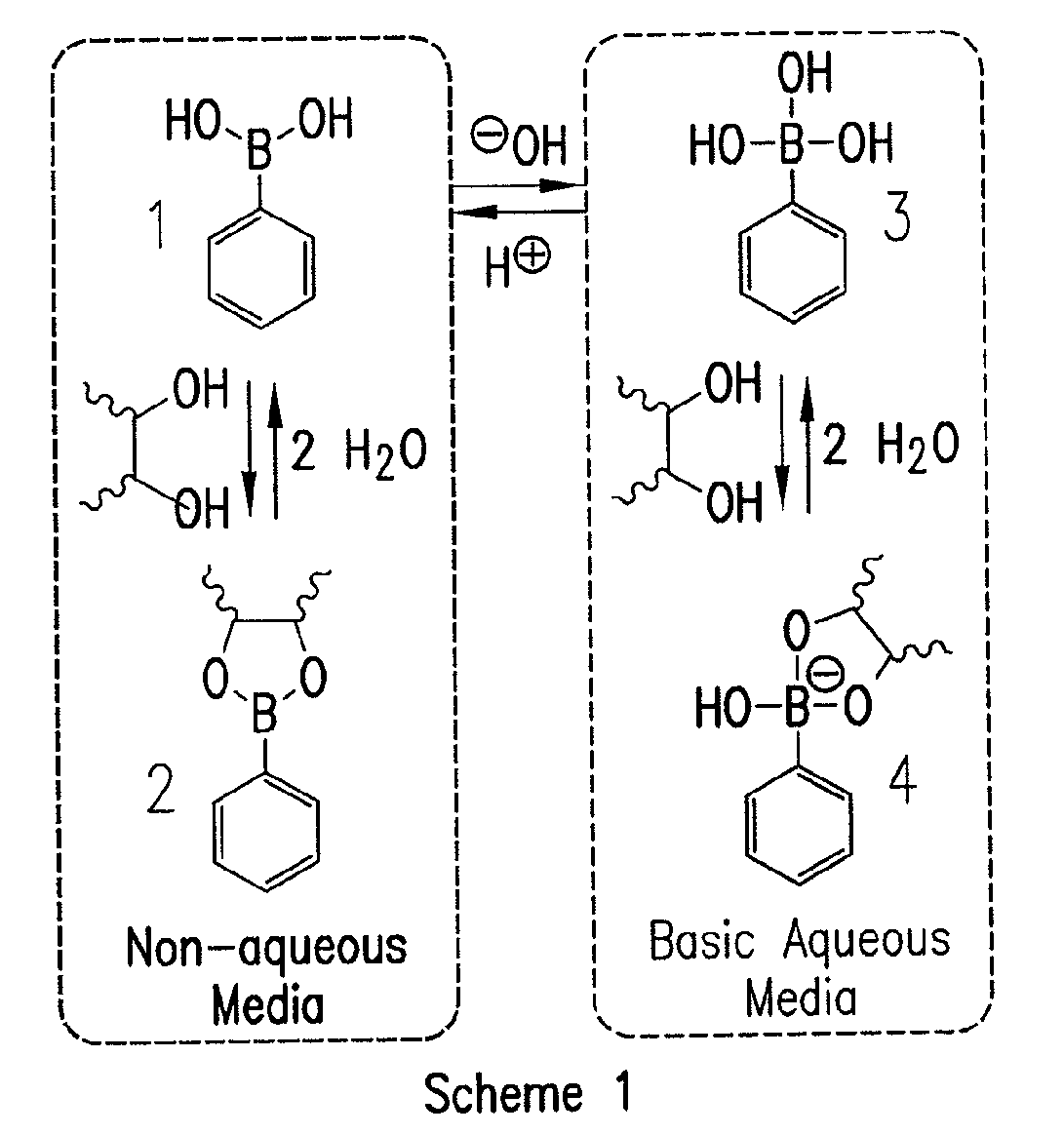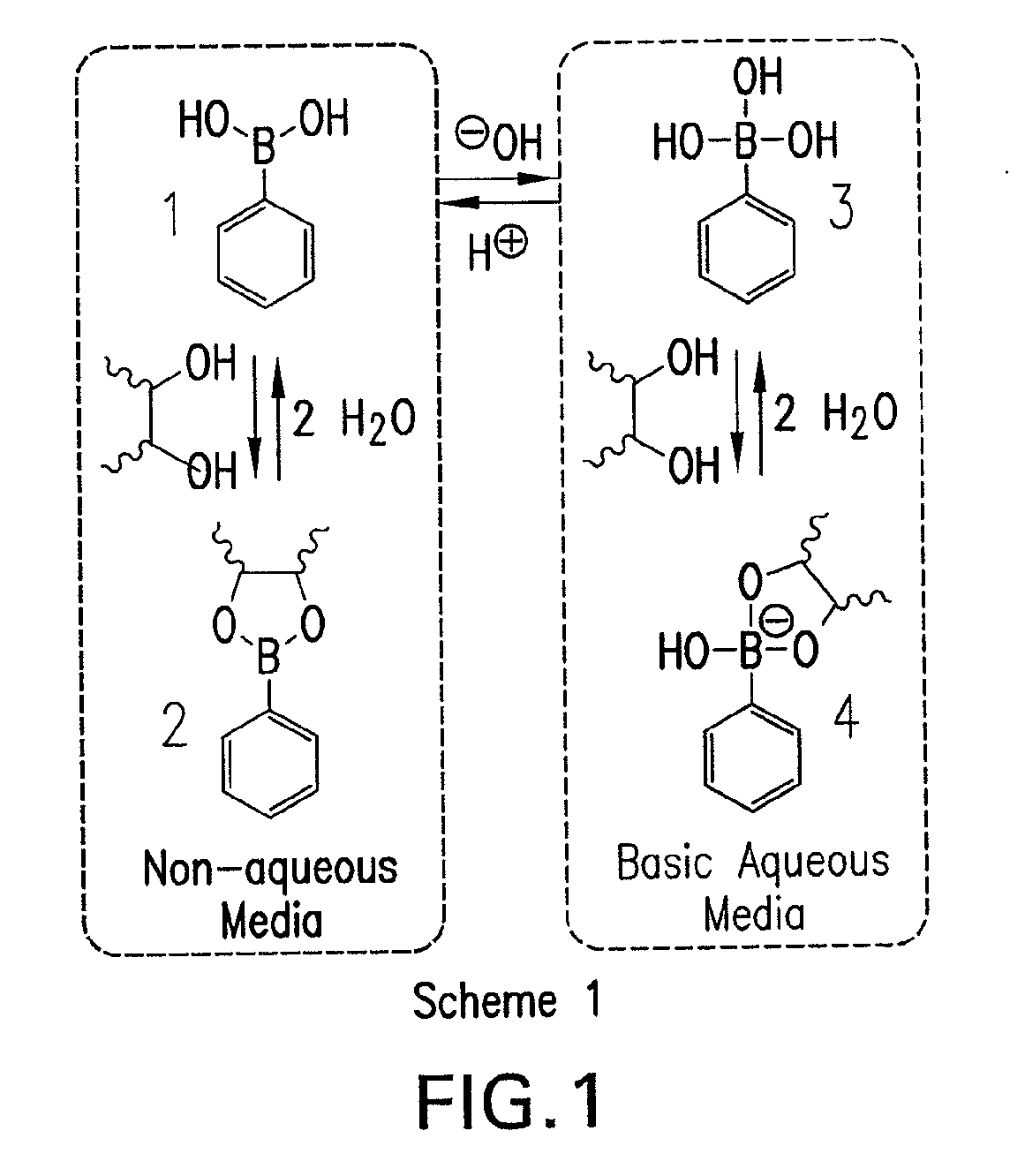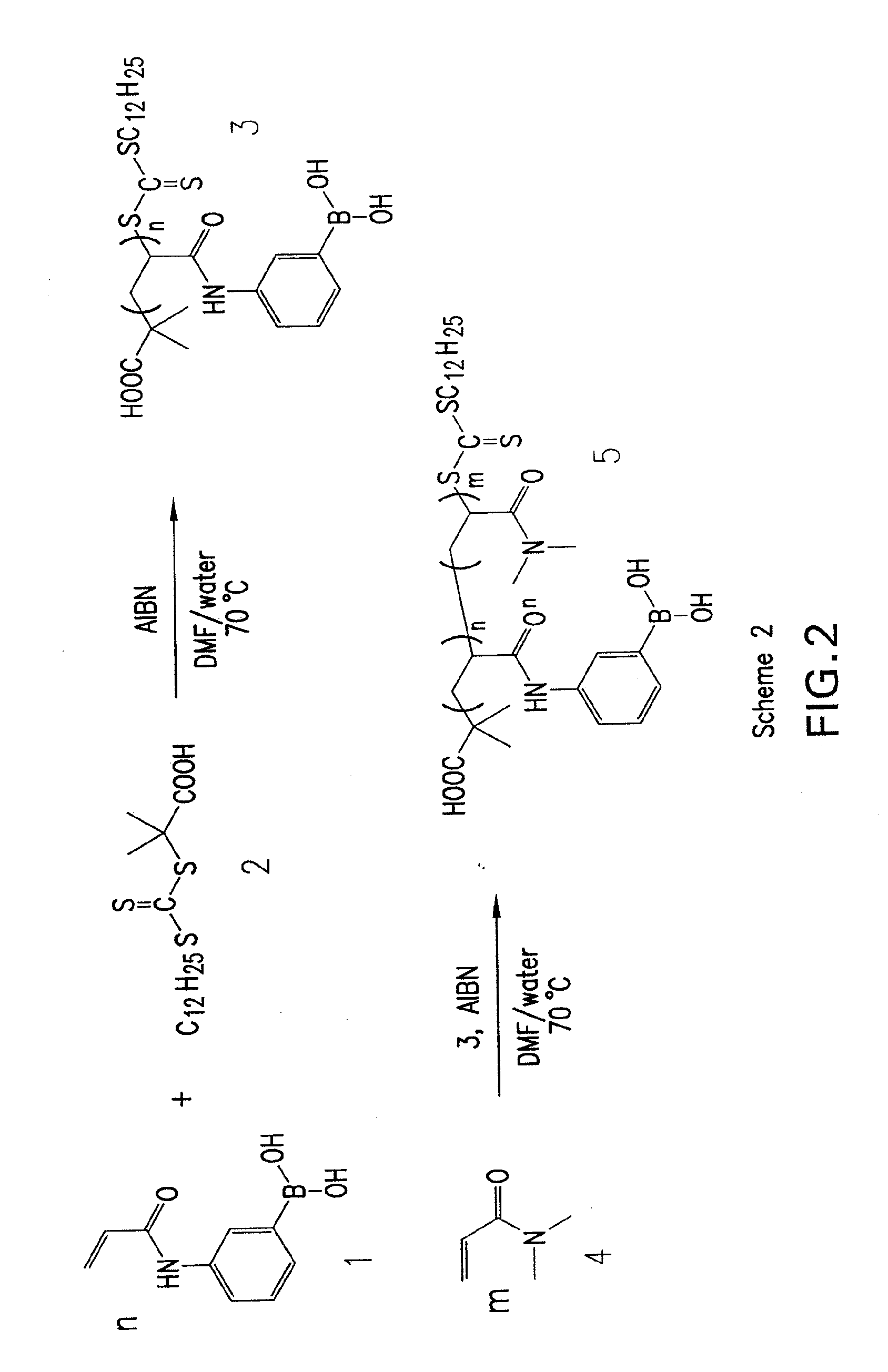Boronic acid-containing block copolymers for controlled drug delivery
a technology of boronic acid and block copolymer, which is applied in the direction of powder delivery, emulsion delivery, peptide/protein ingredients, etc., can solve the problem of significant reduction in patient compliance with the prescribed treatmen
- Summary
- Abstract
- Description
- Claims
- Application Information
AI Technical Summary
Benefits of technology
Problems solved by technology
Method used
Image
Examples
example 1
Controlled Polymerization of Organoboron Monomers
[0074]A current limitation in the field of organoboron polymers is the lack of versatile synthetic techniques for the facile preparation of boronic acid (co)polymers with controlled architecture. The present disclosure, in some embodiments, provides new methods of controlled polymer synthesis. Synthesis and aqueous solution behavior of amphiphilic organoboron block copolymers, especially those with acrylamido hydrophilic blocks has been used. While the success of ATRP for the polymerization of most acrylamido monomers has dramatically improved, reversible addition-fragmentation chain transfer (RAFT) polymerization techniques have been used for the synthesis of a range of polyacrylamides. RAFT may be conducted under relatively mild conditions, may be applicable to nearly any monomer susceptible to radical polymerization, and may employed to prepare a range of well-defined complex macromolecular topologies. In some embodiments, stimuli-...
example 2
End Group Functionalization Via Raft and Azide-Alkyne Click Chemistry
[0099]In addition to providing well-defined pendant boronic acid polymers, some embodiments of the disclosure may include polymers with high degrees of end group functionalization. Telechelics may be employed to create larger macromolecular assemblies, and precise knowledge of end group stoichiometry may be extremely useful to ensure well-defined higher order structures. With a CuI catalyst, Huisgen azide-alkyne cycloaddition results in highly efficient preparation of 1,4-disubstituted 1,2,3-triazole products. The reaction may be conducted under moderate conditions in aqueous or organic media with little or no side products. The versatility of the process led to its inclusion in the class of efficient reactions termed “click chemistry.”
[0100]Some embodiments of the present disclosure may include preparation of ω-(meth)acryloyl macromonomers via ATRP and azide-alkyne coupling. This is an efficient and specific means...
example 3
Stimuli-Responsive Block Copolymer Assemblies
[0103]Stimuli-responsive polymers may undergo marked changes in their physicochemical properties when exposed to external stimuli. In aqueous media, such polymers typically undergo a change in character of functional groups from hydrophilic to hydrophobic, or vice versa. In the unique case of a “smart” block copolymer where one block is hydrophilic and the other stimuli-responsive, the copolymer character may be tuned to be either double-hydrophilic or amphiphilic, depending on the presence or absence of the stimulus. Selective desolvation of the responsive block leads to reversible self-assembly into nanoaggregates such as polymeric micelles, vesicles, or higher order morphologies. Smart block copolymers offer considerable promise in the area of controlled transport and delivery. Polymeric micelles solubilize non-polar species in their hydrophobic cores, while polymeric vesicles can encapsulate water-soluble materials. Upon application o...
PUM
| Property | Measurement | Unit |
|---|---|---|
| concentration | aaaaa | aaaaa |
| concentration | aaaaa | aaaaa |
| concentration | aaaaa | aaaaa |
Abstract
Description
Claims
Application Information
 Login to View More
Login to View More - R&D
- Intellectual Property
- Life Sciences
- Materials
- Tech Scout
- Unparalleled Data Quality
- Higher Quality Content
- 60% Fewer Hallucinations
Browse by: Latest US Patents, China's latest patents, Technical Efficacy Thesaurus, Application Domain, Technology Topic, Popular Technical Reports.
© 2025 PatSnap. All rights reserved.Legal|Privacy policy|Modern Slavery Act Transparency Statement|Sitemap|About US| Contact US: help@patsnap.com



